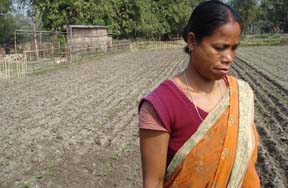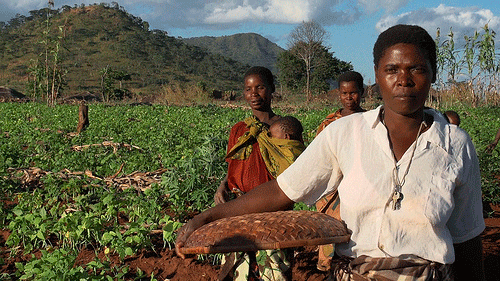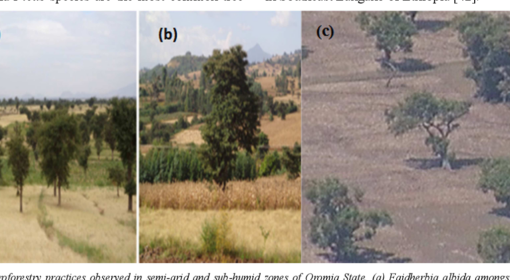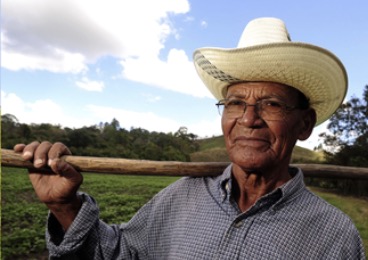 Imagine one big foreign company owning half the arable land in a country. This almost happened a couple of years back as South Korean firm Daewoo offered to lease a million hectares to grow corn, and another 120,000 hectares to produce palm oil in Madagascar. A public outcry followed and the deal fell through by early 2009.
Imagine one big foreign company owning half the arable land in a country. This almost happened a couple of years back as South Korean firm Daewoo offered to lease a million hectares to grow corn, and another 120,000 hectares to produce palm oil in Madagascar. A public outcry followed and the deal fell through by early 2009.
As water scarcity/ food security continue to capture policy agenda and public imagination, rich governments and big corporations are showing unprecedented interest in buying/ leasing farmland abroad. Qatari concerns are looking at Sudan. A joint venture between Dubai and London-based companies will be spending $350 million on farmland in Africa and Romania. China is seeking 2 million hectares in Zambia for biofuels. At less than $10 per hectare annually, Saudi Star Agricultural Development Plc has leased out 10,000 acres of land in Ethiopia’s Gambella region. The company plans to invest $2.5 billion in rice-framing in Ethiopia by 2020.
According to The World Bank, such deals amounted to 45 million hectares in 2009 alone. Recent evidence puts the current figure at 80 million.
Governments and corporations striking the deals present them as an effective response to the food crisis, highlighted by the recent spikes in food prices. Large-scale farming would ensure efficient land-use, higher productivity and greater production that would meet world demands. They argue that this would benefit the poor, as they are hurt the most by high food prices.
In a recent report (Rising Global Interest in Farmland: Can it yield Sustainable & Equitable Benefits), The World Bank posits that large-scale land deals lead to poverty reduction in two additional ways: (i) by increasing employment opportunities and (ii) by increasing the value of land, thus benefitting original landholders through rent/ purchases.
The same report, however, recognises inherent risks to subsistence farmers and small landowners. Far too often, investors target countries with “weak governance,” strike deals with authorities to acquire land at throwaway prices, in “complete neglect of local rights.” This has happened way too often. Such deals, therefore, are now most commonly referred to as ‘land-grab,’ ‘food piracy’ and acts of ‘neo-colonialism.’
Food policy expert Devinder Sharma claims that the process begins right when land deals are justified as measures against food scarcity. “We have about 6.7 billion people on the earth and we produce food for 11.5 billion… The (food crisis) issue is of corporate control over food, speculation, future trading which drives the prices high and corporations make money, as the poor people are deprived of food,” he said in a recent TV interview.
Discussions at the recent International Conference on Global Land Grabbing (Brighton, UK), highlighted that the social and environmental costs of such deals are rarely taken into account. Post-Green Revolution experiences from across the world show that large scale farming eventually depletes water resources and soil quality. Small farming is environmentally sustainable and, therefore, the better long-term bet.
Perhaps the biggest oversight of the pro-land-deal views is that they treat land as a mere factor of production. To small landholders (farmers/non-farmers), land is a unique kind of asset, an insurance for the future. For example, land titles would help them take control of their local water buffers, protecting them from the worst effects of climate change and economic fluctuations. This is especially relevant to farming families.
In most countries with land to offer for large-scale deals, large proportions of the population are farmers. Favouring big, capital-intensive farming should be accompanied by development of other sectors to engage those who will consequently move out of agriculture. Creation of new skills, capacities and a willingness to adopt a new way of life would also be needed. These processes are slow, organic and expensive. Large-scale land deals usually take place over a relatively short period, displacing abruptly a large numbers of farmers not prepared for a switch. This could result in serious conflict (as has been observed around the world).
A dearth of discussions on trans-national land acquisition is hardly the problem. What is unfortunate is that they started in response to underhand deals between big businesses and bad governments (some of them democracies). Hence, polemics have upstaged genuine enquiry. Arguments are being framed as either for or against vested interests.
Have we lost the chance to identify possible synergies between business interests and the investment needs of the farm sector? Or was that never possible?
From the perspective of sustainable water and land use, what should be the role of corporate farming in agricultural policy and practice? Should there be less of it, or none at all? Can countries develop with only small-scale farming?
Are The World Bank’s Principles for Responsible Agricultural Investment comprehensive? Can they be incorporated as internationally binding regulations?
And, most importantly, are land and water rights for real? How can they be guaranteed in the face of the insurmountable bargaining power that big corporations seem to posses?
(Some of these questions will be discussed at the upcoming webinar on Sustainable Land Management, scheduled for May 18, 2011. Email us for more information. ){jcomments on}



